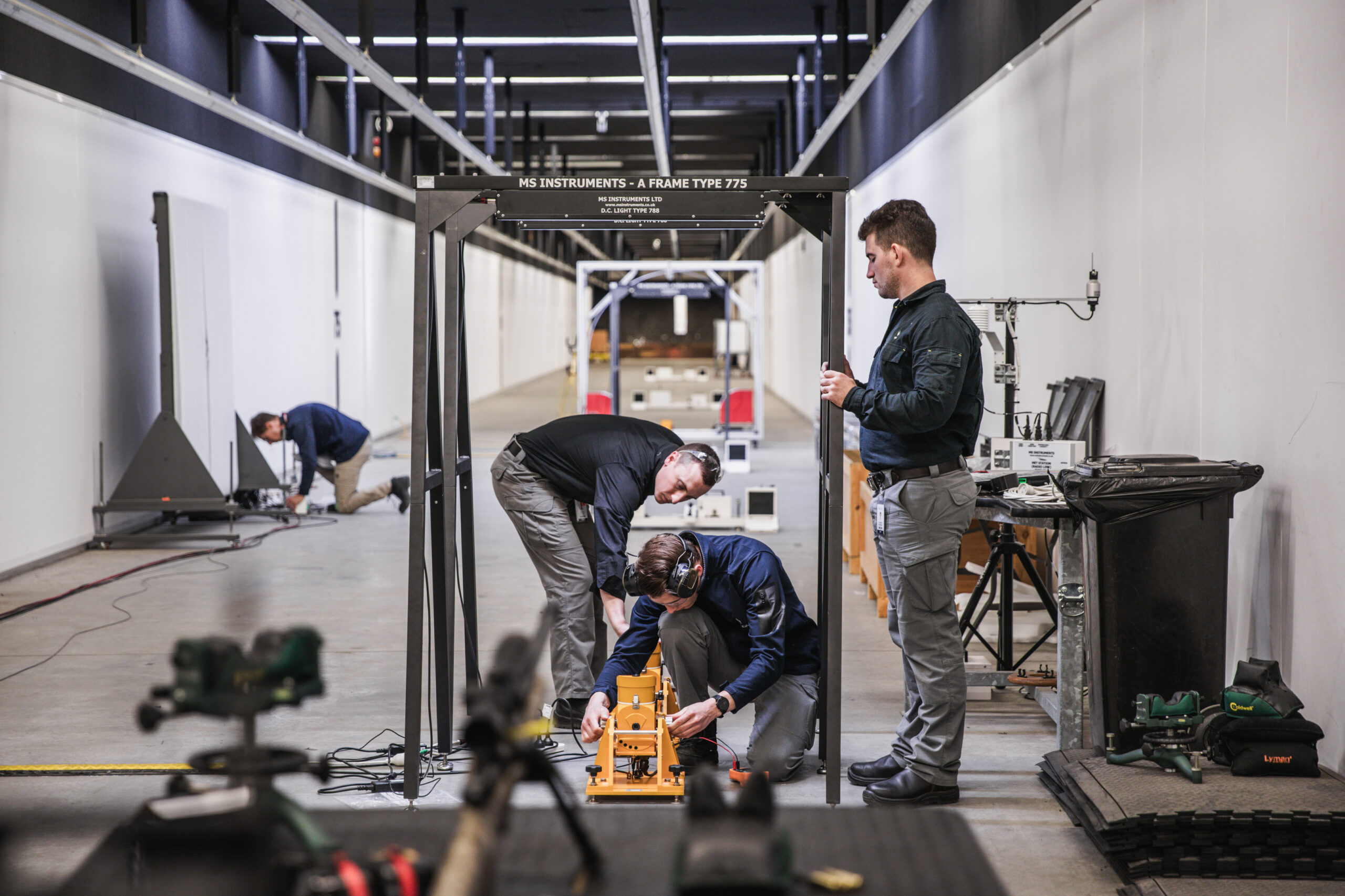ASTM E3061 Testing Ballistic Shields Against Rifle Rounds
The ASTM E3061 standard provides a method to evaluate ballistic resistance of personal body armor and other protective equipment. This service focuses specifically on testing ballistic shields against rifle rounds, ensuring they meet stringent safety and performance standards.
Ballistic shields are critical components in the defense industry, designed to provide protection from high-velocity threats such as rifle fire. The ASTM E3061 test procedure is widely recognized for its rigorous approach to assessing the ability of these shields to withstand specific rounds under controlled conditions. This service ensures that manufacturers and suppliers can demonstrate compliance with international standards.
The testing process involves subjecting ballistic shields to a series of impact tests using rifle ammunition. The standard specifies the types of ammunition, velocities, and angles at which the tests are conducted. These parameters are critical in simulating real-world combat scenarios where threats may come from various directions and with varying velocities.
During the test, the ballistic shield is placed between a firing line and a target area. The rifle rounds are fired at the shield, and their impact is monitored to assess whether they penetrate or not. The standard also includes criteria for evaluating the integrity of the shield after testing, including checking for breaches in the material that could compromise protective capabilities.
Compliance with ASTM E3061 ensures that ballistic shields are reliable and effective under field conditions. This is particularly important for military and law enforcement personnel who depend on such equipment for their safety. The service provided by Eurolab ensures that all testing meets the high standards set forth in this international standard, providing peace of mind to those responsible for equipping individuals with protective gear.
The testing process also involves detailed analysis of the test results. This includes measuring the extent of any damage or breaches in the shield and assessing whether these meet the acceptable limits defined by the standard. Reporting is comprehensive, detailing all aspects of the test, including ammunition used, velocities achieved, angles of impact, and final results.
Manufacturers and suppliers can use this service to ensure their products are up to the highest safety standards. By partnering with Eurolab for ASTM E3061 testing, they gain access to expertise in military testing and compliance that is essential for maintaining a competitive edge in the defense sector.
Eurolab Advantages
- State-of-the-art facilities equipped with advanced instrumentation for precise measurements and analysis.
- A team of experienced engineers and technicians specializing in military testing and compliance.
- Comprehensive reporting tailored to meet the specific needs of our clients, including detailed test procedures and results.
- Access to industry-leading standards such as ASTM E3061, ensuring that all tests are conducted according to the highest international standards.
Why Choose This Test
The ASTM E3061 test is critical for manufacturers and suppliers of ballistic shields. It ensures that their products meet stringent safety requirements, which is essential in the military sector where reliability and effectiveness are paramount.
Compliance with this standard can enhance the reputation of a company by demonstrating its commitment to quality and safety. This can lead to increased trust from customers, especially those in high-risk environments such as law enforcement or military personnel.
The test also provides valuable data that can be used for continuous improvement. By identifying any weaknesses in the shields during testing, manufacturers can make necessary adjustments and enhancements to improve performance.
Furthermore, compliance with ASTM E3061 is a requirement in many countries, making it essential for international trade and sales. Ensuring that products meet these standards can help avoid legal issues and ensure smooth operations.
Quality and Reliability Assurance
- Conducting multiple rounds of testing to ensure consistent results.
- Implementing rigorous quality control measures throughout the testing process.
- Using advanced instrumentation to provide accurate and reliable data.
- Providing detailed reports that can be used for quality assurance purposes.





